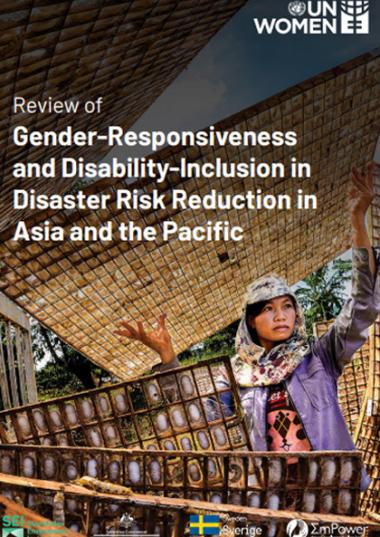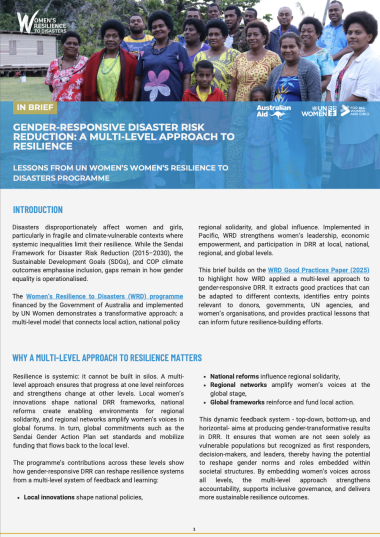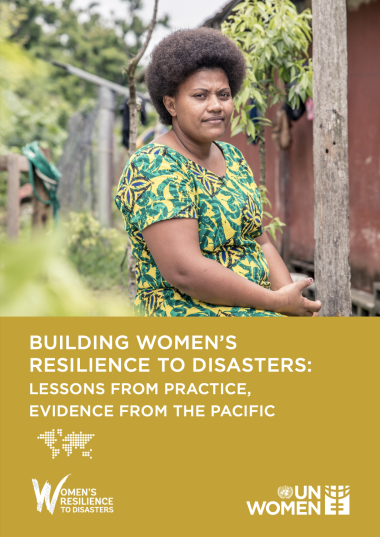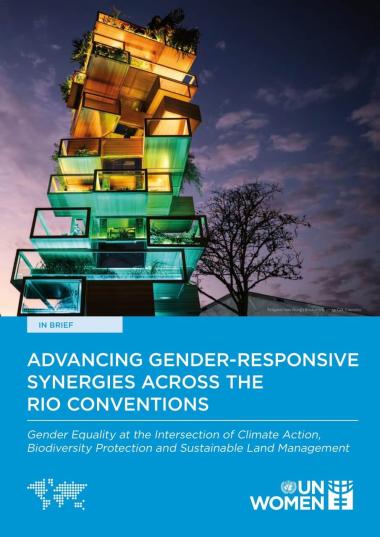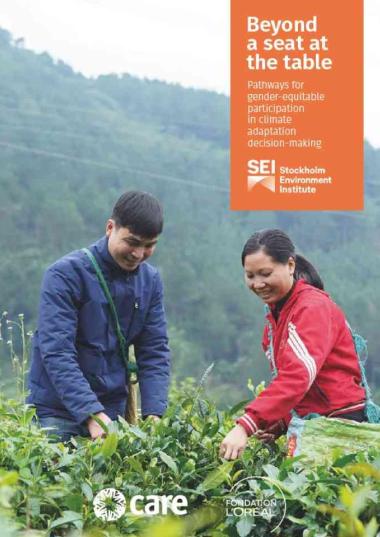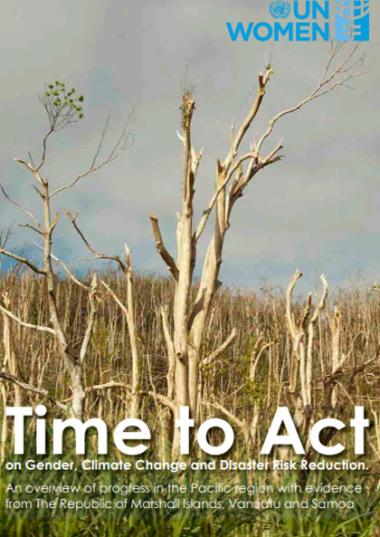
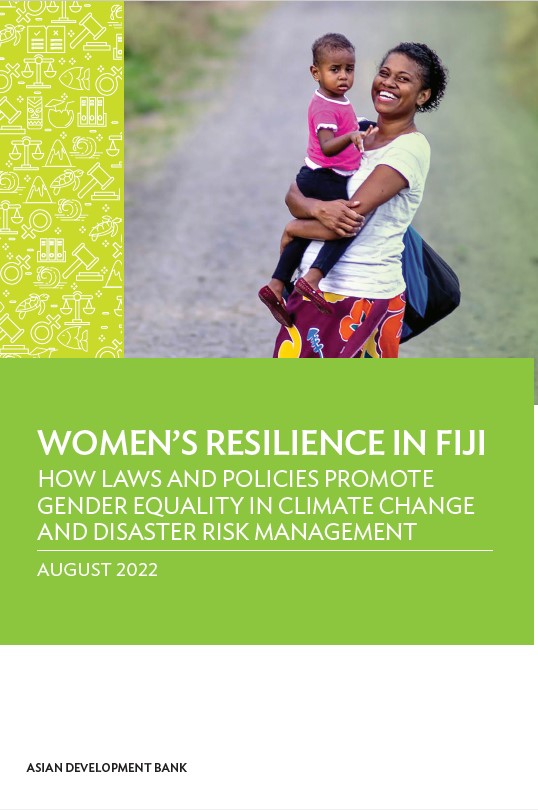
Women's resilience in Fiji: How laws and policies promote gender equality in climate change and disaster risk management
August 2022
Climate change impacts and weather-related disasters fundamentally threaten the capacity of Fiji to continue on the path of sustainable development. As a small island nation, Fiji is highly exposed to the impacts of climate change and weather-related disasters, intense tropical cyclones and storms, sea level rise, ocean warming and acidification, and the related hazards of floods, landslides, and drought. The Republic of Fiji spans over 330 islands with a total land area of 18,333 square kilometers (km2).a One-third of the islands are permanently inhabited, and most of these are volcanic in origin. The largest islands of Viti Levu and Vanua Levu make up around 87% of the Fiji landmass and are home to about 90% of the population. In Fiji, there are strong linkages between climate change and disaster risk. There is a sense of urgency for Fiji to respond to climate change and disaster risks due to the immediate human impacts and recovery costs of weather-related disasters, the vulnerability of coastal communities, floods, and damage to agricultural activity due to seawater intrusion. These hazards impact health, livelihoods, and industry (especially agriculture, forestry, fisheries, transport, and tourism), housing, infrastructure, poverty, and social cohesion. The future of Fiji depends on its citizens being resilient to sudden-onset disasters and adapting to permanently changed environmental conditions. Decisions about how to adapt to these changes impact social groups within the population differently. Gender inequalities influence the ability of women and men and different social groups to build resilience. Therefore, decisions must be informed by sex- and age-disaggregated data as much as possible.
This report conducts a gender analysis of the national legal and policy frameworks of Fiji to determine whether laws, policies, and strategies consider gender inequalities as they relate to climate and disaster risk and contribute to strengthening women’s resilience. The laws of a country set the legal framework and provide the foundation to regulate a sector and guarantee fundamental rights and policies that should amplify legal provisions and implement legislative guarantees. A National Good Practice Legislative Framework was developed for the analysis in this report. The framework draws on (i) the Committee on the Elimination of Discrimination Against Women (CEDAW) General Recommendation No. 37 on the gender-related dimensions of disaster risk reduction in the context of climate change (CEDAW GR37), and (ii) a report on best practice legal frameworks in Asia and the Pacific, which assists in selecting laws and policies related to the national approach to gender equality, climate and disaster risks, as well as socioeconomic development for gender analysis. The analysis of the selected laws and policies informed an assessment of the extent to which equality and discrimination concepts are explicit in laws and policies and how this affects women’s resilience to climate and disaster risks. The report methodology included secondary data collection and analysis, support from stakeholder interviews, a country mission, and national workshops.
